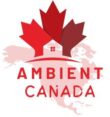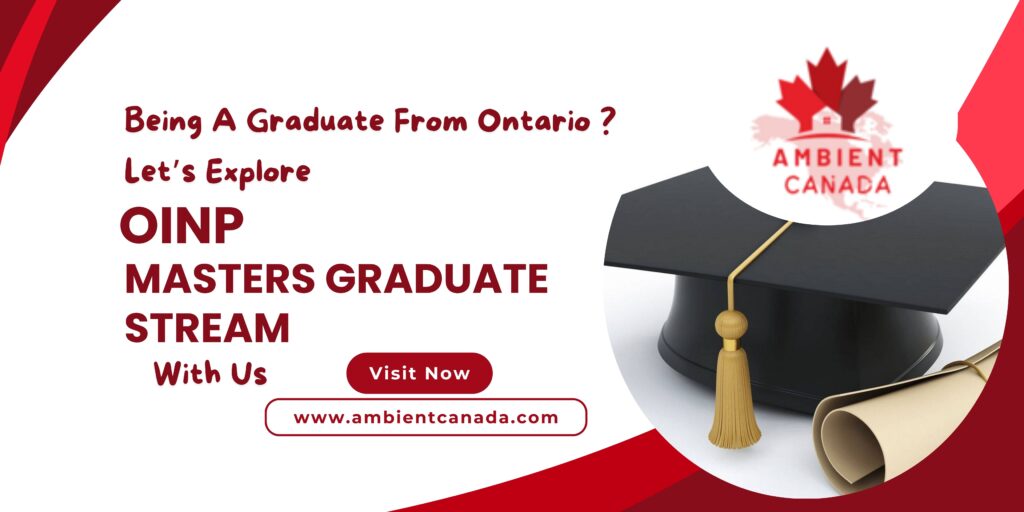Canada is a dream destination for international students, and if you’re planning to make the move, Ontario stands out as a top choice. With its breathtaking natural beauty, diverse seasons, thriving job market and promise of a secure future, Ontario offers the perfect balance of opportunity and quality of life.
But behind every bright dream, there’s a shadow of challenges, and Canada is no exception. Nothing comes free here, you have to earn it. To carve out a happy life or secure future in Canada, you need resilience, determination, and an unbreakable will to succeed. So, if you’re planning to make Canada your home, it’s not just about dreaming; it’s about planning and preparing for the journey ahead.
Master’s and PhD programs are among the most popular and sought-after paths for students worldwide. If you’re planning to move to Ontario, you have a unique opportunity to secure permanent residency in Canada through the OINP Masters Graduate Stream.
Requirements:
There are two basic requirements to apply for this stream. If you carefully plan your Master’s or PhD journey, you can navigate the process smoothly despite any complications.
Requirement 1: You must complete at least a 16-month Master’s program or a PhD degree from a recognized university in Ontario.
Requirement 2: After graduation, you must either secure a full-time job (Job Category: Tiers 0-3) or maintain a settlement fund of 14,690 CAD for a single applicant or 18,288 CAD for a couple in a Canadian savings account.
This means that you have an option to apply for PR even without a valid job offer—simply by showing the required settlement funds in your bank account.
Apply:
To apply through this stream, you need to follow three simple steps:
- Register an Expression of Interest: Visit the official Canada Immigration website, complete the Expression of Interest (EOI) form, and receive your score.
- Receive an Invitation to Apply: If your score meets or exceeds the cutoff in the draw, you’ll receive an invitation from IRCC. At this stage, you’ll be given a set timeframe to submit all the necessary documents that you indicated in your EOI.
- Apply for PR: Once your documents are reviewed and approved, IRCC will issue a a nomination approval letter, a work permit support letter (if applicable) and a nomination certificate allowing you to officially apply for permanent residency. From there, you can submit your PR application directly through the IRCC online portal.
Scoring Factors:
To secure PR in Canada through any immigration stream, you’ll need to meet certain scoring criteria. These are divided into five key categories, and your overall score depends on them:
- Valid Work Permit: If you’re an international student pursuing a Master’s or PhD in Ontario, you’ll be eligible for a valid post-graduation work permit after completing your degree. This is a crucial step toward PR.
- Level of Education:
- Highest Level of Education: Your score will vary depending on whether you’ve completed a Master’s or PhD.
- Field of Study: The subject of your degree also influences your score. For instance, students from science or engineering backgrounds typically receive higher scores compared to those from business or social sciences. It’s essential to consider this when selecting a program to ensure you’re well-prepared for the scoring system.
- Canadian Education Experience: If you’ve completed one or more credential programs in Canada, the number of credentials will positively impact your score. All educational credentials must be from an eligible Canadian institution and should take at least one year of full-time study to complete.
- Language Proficiency: Language is a significant factor in all Canadian immigration streams.
- Official Language Ability: Canada has two official languages—English and French. You can take one or both language tests to meet the requirements.
- Knowledge of Official Languages: Completing tests in both English and French, with the required benchmark scores, can boost your points even further compared to taking just one language test.
- Regionalization: The location of your studies in Ontario also plays a role in scoring. For example, attending school in Toronto might give you a different score than studying in smaller cities or rural areas. Your points can vary depending on where you complete your education.
To get all details visit Official site of IRCC
The path from international student to permanent resident in Canada is filled with opportunity, especially through the OINP Masters Graduate Stream. Ontario not only boasts top-tier education but also a welcoming environment that can help you secure a bright future. By understanding the key requirements and scoring factors, you can navigate this journey with confidence. Your dreams of making Canada your home are within reach—embrace the journey, plan wisely, and take the next step toward your new life!



